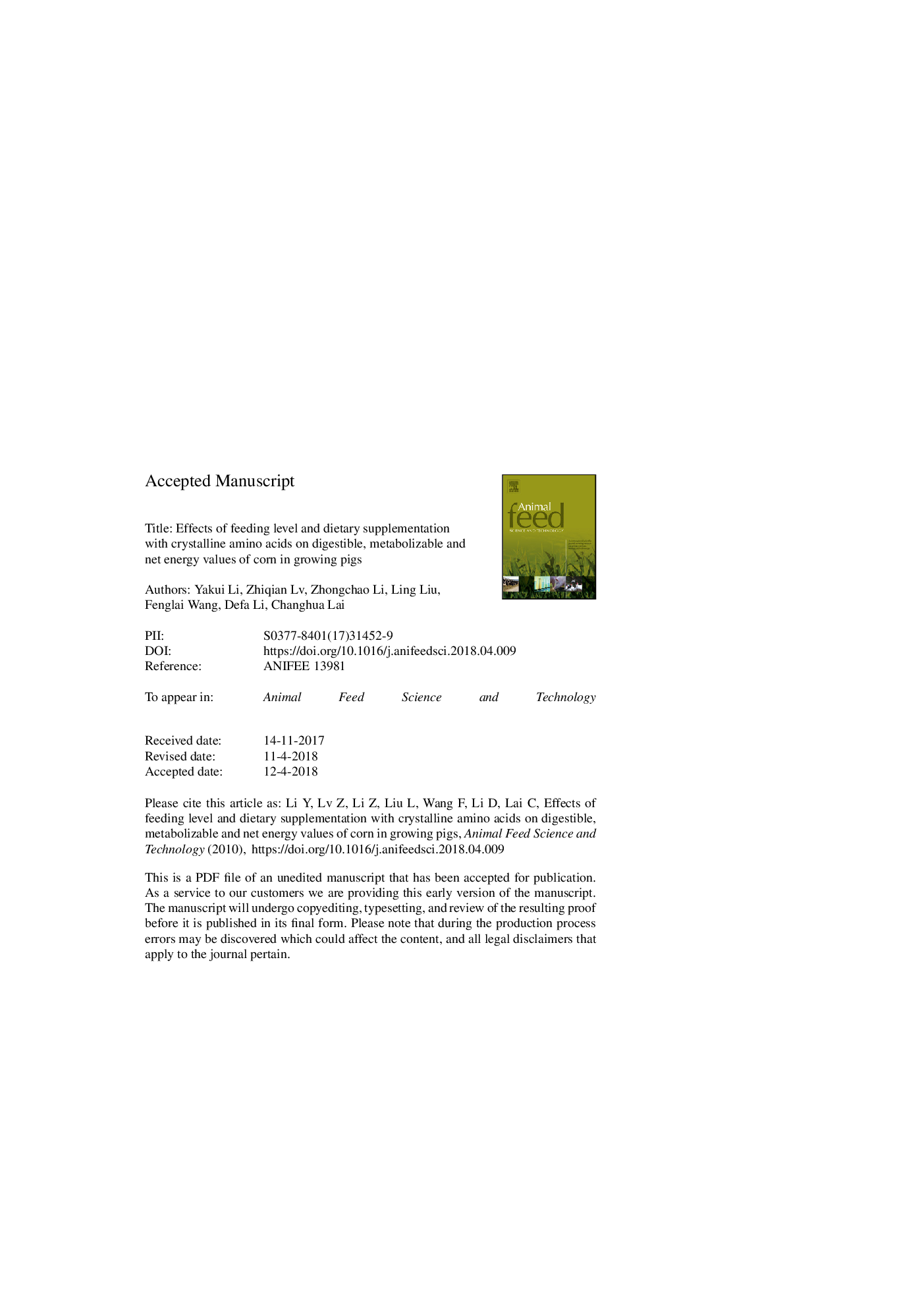| Article ID | Journal | Published Year | Pages | File Type |
|---|---|---|---|---|
| 8490967 | Animal Feed Science and Technology | 2018 | 31 Pages |
Abstract
The present study was conducted to investigate the effects of feeding level and dietary supplementation with crystalline amino acids (AA) on the determination of energy contents in corn for growing pigs. A total of 36 barrows with an average initial body weight of 41.4â¯Â±â¯2.0â¯kg were allocated across six treatments in a 2â¯Ãâ¯3 factorial arrangement that included 2 feeding levels (2400â¯kJ ME/kg BW0.6 per day or ad libitum) and 3 dietary AA supplementation patterns (corn diet with no AA; cornâ¯+â¯3AA diet with addition of lysine, threonine and tryptophan; cornâ¯+â¯5AA diet with greater levels of crystalline lysine, threonine and tryptophan supplementation than those in cornâ¯+â¯3AA diet plus crystalline methionine and isoleucine supplementation). The experiment was conducted in 6 consecutive periods. During each period, 6 pigs were allotted to 1 of 6 treatments, and each treatment corresponded to 1 of 6 respiration chambers. In each period, pigs were individually housed in metabolism crates and fed their respective diets at two feeding levels for 13 d, including 7 d adaptation to the feed, metabolism crate and environmental conditions. On d 8, the pigs were transferred to respiration chambers. Total feces and urine samples were collected and heat production was measured from d 8 to 12. On the last day of each period, the pigs were fasted for 24â¯h and fasting heat production was subsequently measured. The apparent total tract digestibility (ATTD) of dry matter (DM), organic matter (OM) and gross energy (GE) in diets and corn were not affected by feeding level; however, increasing feeding level tended (Pâ¯=â¯0.09) to decrease the ATTD of crude protein (CP). Nitrogen retention increased (Pâ¯<â¯0.05) with increasing feeding level and dietary AA supplementation. The heat production (HP) and retention of energy (RE) were increased (Pâ¯<â¯0.05) and the fasting heat production (FHP) tended (Pâ¯=â¯0.09) to increase with increasing feeding level. Feeding level did not affect the DE, ME and NE in corn. Dietary AA supplementation tended to increase ME intake (Pâ¯=â¯0.05) and significantly (Pâ¯<â¯0.05) increased HP and energy retained as protein (REP). Dietary supplementation with AA did not influence the DE and ME values in the corn but tended (Pâ¯=â¯0.07) to increase NE values in the corn.
Keywords
Related Topics
Life Sciences
Agricultural and Biological Sciences
Animal Science and Zoology
Authors
Yakui Li, Zhiqian Lyu, Zhongchao Li, Ling Liu, Fenglai Wang, Defa Li, Changhua Lai,
